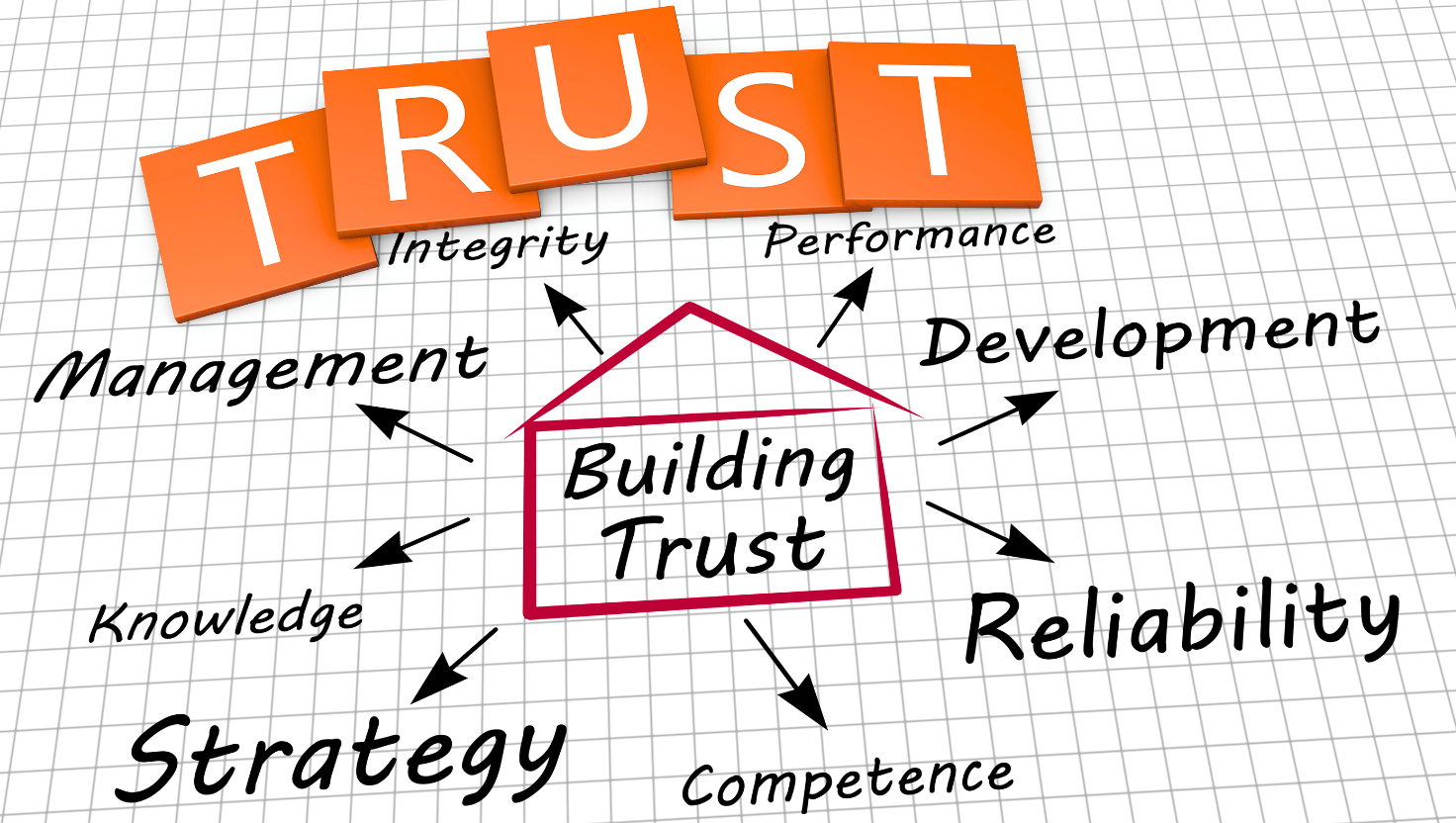
In 2025’s chaotic business landscape, trust is India’s secret weapon. With 61% of employees trusting leadership (Edelman 2025), discover how Indian companies harness transparency and ethics to drive 50% higher productivity and 286% better stock performance. From fostering innovation to navigating crises, trust transforms challenges into opportunities. Uncover actionable strategies to build a trust-centered culture that captivates talent and investors. Can trust redefine your organization’s success?
In an era defined by rapid change, economic uncertainty, and technological disruption, trust has emerged as the cornerstone of organizational success. For Indian companies navigating the complexities of the 2025 business landscape, trust is not just a moral imperative but a strategic asset that drives resilience, innovation, and growth. From the bustling corporate hubs of Mumbai and Bengaluru to global boardrooms, trust shapes how businesses weather crises, foster employee engagement, and build lasting relationships with stakeholders. This blog post explores the transformative power of trust, offering actionable insights grounded in the latest data, with a focus on the Indian perspective.
Why Trust Matters in Today’s Business World
Trust is the invisible yet indispensable force that binds organizations together. It’s the mutual confidence between leaders, employees, customers, and partners that fuels collaboration, loyalty, and excellence. In turbulent times—marked by geopolitical tensions, economic volatility, and rapid advancements in technologies like artificial intelligence—trust becomes a stabilizing force and a catalyst for transformation.
In India, where cultural diversity, regulatory complexities, and a multi-generational workforce define the corporate landscape, trust is a competitive edge. According to a 2025 Edelman Trust Barometer report, 61% of Indian employees express high or complete trust in their company leadership, surpassing the Asia-Pacific average of 58% and the global average of 54%. This reflects India’s growing emphasis on ethical governance and transparent leadership, positioning trust as a key driver of organizational success.
The Building Blocks of Trust
At its core, trust in business encompasses four key elements:
- Honesty: Communicating openly and authentically.
- Competence: Delivering consistent, high-quality results.
- Fairness: Treating employees, customers, and partners equitably.
- Commitment: Aligning actions with promises to stakeholders.
When these elements are present, organizations unlock a range of benefits:
- Employee Engagement: Trust empowers employees, leading to higher productivity and discretionary effort.
- Innovation: A culture of trust fosters psychological safety, encouraging teams to experiment and share ideas.
- Customer Loyalty: Transparent and ethical practices build strong, lasting relationships with customers.
- Resilience: Trust ensures stakeholder support during crises, enabling organizations to navigate challenges effectively.
Trust in Turbulent Times: Why It’s More Critical Than Ever
The global business environment in 2025 is fraught with challenges. From supply chain disruptions to the rapid adoption of AI and automation, companies face unprecedented uncertainty. In India, additional factors like evolving data protection laws and a diverse workforce amplify the need for trust. Here’s why trust is indispensable in today’s volatile landscape:
1. Fostering Psychological Safety and Engagement
Psychological safety—the belief that employees can take risks and voice ideas without fear of retribution—is critical for engagement and adaptability. A 2025 Gallup study found that high-trust workplaces in India report 50% higher employee engagement compared to low-trust environments. Engaged employees are more likely to innovate, collaborate, and contribute to organizational goals, making trust a vital asset during turbulent times.
2. Supporting Transparent and Ethical Leadership
Skepticism about corporate intentions is on the rise globally. The 2025 Edelman Trust Barometer notes that 68% of global consumers believe business leaders deliberately mislead stakeholders. In India, where public scrutiny of corporate governance is intensifying, transparent and ethical leadership is essential to rebuild and maintain trust. Leaders who communicate openly about challenges and decisions foster confidence and alignment.
3. Driving Customer and Stakeholder Loyalty
In times of disruption, loyal customers and investors are a company’s lifeline. A 2025 NielsenIQ survey revealed that 73% of Indian consumers prefer brands they perceive as trustworthy, with transparency and ethical practices being key drivers of loyalty. Companies that prioritize integrity not only retain customers but also attract global investors, enhancing their competitive position.
4. Enabling Effective Change Management
Adopting new technologies or restructuring operations often meets resistance. Trust eases this transition by building acceptance and alignment. For example, Indian IT giants like TCS and Infosys have successfully implemented AI-driven solutions by fostering trust through clear communication and employee upskilling programs, ensuring smooth change management.
New TDS Rules From 25, September 2025: Why Middle-Class Indians Are Losing ₹20K on FDs – And the One Form to Stop It
Tracking Hidden Info: India’s Bold Move Against Digital Tax Evasion and Companies Law Target Offshore Data in 2025
HDFC NetBanking Down Twice This December: What You MUST Do Before It’s Too Late!
Instant Cash: 5 Most Popular Reasons Why People Take a Personal Loan in 2025
The Indian Perspective: Trust as a Strategic Advantage
India’s business landscape is unique, shaped by cultural diversity, complex regulations, and a workforce spanning Baby Boomers to Gen Z. Trust plays a pivotal role in navigating these dynamics and positioning Indian companies for global success.
Building Trust Amid Digital and Regulatory Shifts
India’s rapid digital transformation, coupled with stringent data protection laws like the Digital Personal Data Protection Act (DPDPA) of 2023, has made enterprise trust management a priority. Compliance with these regulations signals reliability and care for customer data, enhancing organizational trustworthiness. For instance, Indian fintech companies like Paytm and PhonePe have invested heavily in data security, earning consumer trust and driving adoption.
Generational Trust Dynamics
India’s workforce is a melting pot of generations with distinct trust expectations. Baby Boomers and Gen X value stability and proven leadership, while Millennials and Gen Z prioritize transparency, authenticity, and growth opportunities. A 2025 Deloitte India survey found that 67% of Gen Z employees in India expect regular feedback and career development opportunities to trust their employers. Companies that balance these expectations create inclusive, future-ready cultures.
Trust as a Magnet for Talent and Investment
In India’s competitive job market, trust is a key differentiator for attracting and retaining talent. High-trust organizations report 50% lower turnover rates, according to a 2025 LinkedIn India report. Moreover, trustworthy companies attract global investors, as seen in India’s startup ecosystem, which raised $12 billion in venture capital in 2024, driven by confidence in ethical governance and innovation.
How Indian Companies Can Build and Sustain Trust
Building trust is a deliberate, ongoing process that starts with leadership and permeates every aspect of an organization. Here are six actionable strategies for Indian companies to cultivate and maintain trust:
1. Embrace Honesty and Transparency
Open communication about challenges, financial realities, and strategic decisions builds respect and confidence. For example, during the 2024 economic slowdown, Indian conglomerate Tata Group maintained employee trust by transparently communicating cost-cutting measures while prioritizing job security.
2. Demonstrate Competence and Deliver Results
Trust hinges on delivering consistent, high-quality outcomes. Indian companies like Reliance Industries have earned stakeholder trust by consistently meeting ambitious targets, such as expanding their renewable energy portfolio, reinforcing their reputation for competence.
3. Act with Integrity and Fairness
Ethical practices are non-negotiable for trust. Indian pharmaceutical companies like Dr. Reddy’s have strengthened stakeholder confidence by adhering to global quality standards and prioritizing fair treatment of employees and suppliers.
4. Invest in Clear and Compassionate Communication
In India’s diverse workforce, clear and empathetic communication bridges cultural and generational gaps. Regular town halls, feedback mechanisms, and multilingual communication channels help align values and expectations.
5. Foster Employee Engagement and Inclusion
Involving employees in decision-making and providing growth opportunities fosters ownership and trust. Infosys’ “InStep” internship program, which engages global talent, exemplifies how inclusion drives trust and innovation.
6. Demonstrate Long-Term Commitment
Trust is built through consistent actions over time. Indian companies like HCL Technologies have embedded trust into their DNA by aligning business practices with sustainability goals and community engagement initiatives, earning stakeholder loyalty.
The Tangible Benefits of a Trust-Centered Culture
Organizations that prioritize trust reap measurable rewards, particularly in India’s dynamic market:
- Higher Productivity and Retention: A 2025 Great Place to Work India study found that high-trust workplaces report 50% higher productivity and 60% lower attrition rates.
- Superior Financial Performance: Companies with high trust levels outperform low-trust peers by up to 286% in stock market returns, according to a 2025 Fortune India analysis.
- Enhanced Innovation: Trust fosters a culture of experimentation, enabling Indian startups like Zomato to innovate rapidly in competitive markets.
- Crisis Resilience: During the 2024 supply chain disruptions, Indian companies with strong trust foundations, like Maruti Suzuki, maintained stakeholder support and recovered swiftly.
These benefits highlight trust as a business imperative that directly impacts profitability and sustainability.
Overcoming Challenges to Building Trust
While the benefits of trust are clear, building it in India’s complex environment is not without challenges. Missteps in communication, inconsistent actions, or failure to address generational differences can erode trust. To overcome these hurdles, companies must:
- Align Actions with Words: Avoid overpromising and underdelivering.
- Address Cultural Nuances: Tailor communication to resonate with India’s diverse workforce.
- Invest in Leadership Training: Equip leaders with skills to foster trust through empathy and accountability.
Final Thought: Trust as the Heartbeat of Indian Organizational Excellence
In the turbulent landscape of 2025, trust is the lighthouse guiding Indian companies toward resilience, innovation, and growth. It inspires employees to give their best, fuels groundbreaking ideas, and builds communities of loyal customers and partners. For Indian organizations, trust is not just a foundation but a powerful catalyst that transforms challenges into opportunities.
By weaving trust into the fabric of their culture—through honesty, competence, fairness, and transparent communication—Indian companies can navigate uncertainty with confidence and lead on the global stage. As India continues its ascent as an economic powerhouse, trust will be the heartbeat of organizational excellence, propelling businesses to not only endure but thrive, inspire, and shape a sustainable future.



























